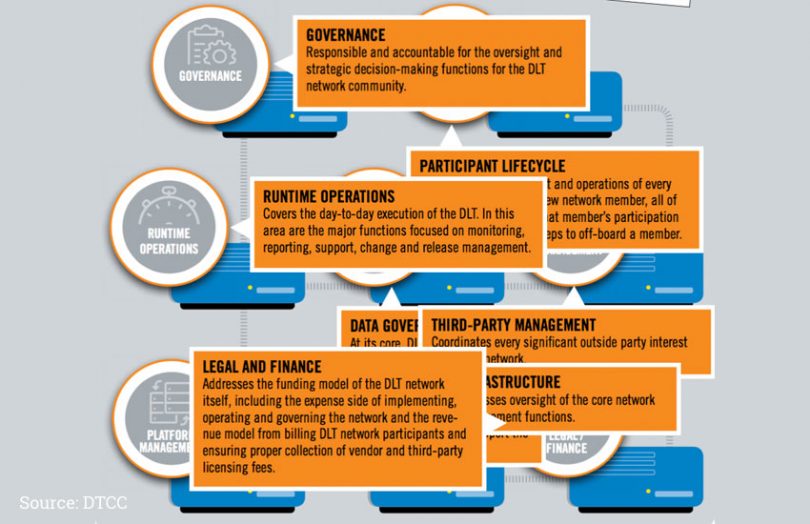who coined the term tragedy of the commons: The tragedy of the commons The Caspian Sea Chessboard Geo-Political, Geo-Strategic, and Geo-Economic Analysis


A common-pool resource is an open-access resource susceptible to overexploitation because people have an incentive to consume as much as they want. Investopedia requires writers to use primary sources to support their work. These include white papers, government data, original reporting, and interviews with industry experts. We also reference original research from other reputable publishers where appropriate.
The Tragedy of the Commons occurs when every person has an incentive to use a resource, yet doing so comes at the price of every other individual, and there is no means to prevent anybody from partaking in the consumption. To understand the definition of the Tragedy of the Commons, let’s consider a town where all individuals engage in sheep farming. One peculiar thing about this town is that the land of this town is shared by everyone who lives there.

Rules and regulations, such as environmental legislation, ensure that shared resources are not depleted. While the use of natural resources is an important part of how societies maintain themselves and build relationships with other nations, the tragedy of the commons focuses specifically on the inappropriate who coined the term tragedy of the commons and abusive use of such resources. If one person or group overuses the resources, others are likely to get the impression that it’s their right to do so as well. The tragedy, then, is that the abuse of resources spirals out of control and results in a broader impact that can become a global issue.
Comedy of the commons
Most online reference entries and articles do not have page numbers. Therefore, that information is unavailable for most Encyclopedia.com content. Refer to each style’s convention regarding the best way to format page numbers and retrieval dates. Encyclopedia.com gives you the ability to cite reference entries and articles according to common styles from the Modern Language Association , The Chicago Manual of Style, and the American Psychological Association . The Harvard legal scholar Yochai Benkler has called this phenomenon ‘commons-based peer production’.
As there are more sheep and a fixed amount of land to feed them, the land loses its potential to regenerate. Figure 1 represents some of the houses from the imaginary town of the commons. To support themselves, households in this town keep sheep and trade them with other goods and services with people from other towns. Everyone also uses the land which everyone owns to feed their sheep. The two fishermen catch some fish and allow other fish to reproduce; that way, the number of fish grows in the lake. Everyone’s trying to catch as many fish as possible before no fish are left.
- The problem for the years ahead is to work out an acceptable theory of weighting.
- Alternative to managing relations between people, some scholars argue that it is access itself that needs to be properly managed, which includes expansion of network capacity.
- Whenever size alters the properties of a system, engineers speak of a “scale effect.” A scale effect, based on human psychology, limits the workability of commonistic systems.
The good becomes more and more scarce and may end up entirely depleted. Garrett Hardin, an evolutionary biologist by education, wrote a scientific paper titled “The Tragedy of the Commons” in the peer-reviewed journal Science in 1968. The paper addressed the growing concern of overpopulation, and Hardin used an example of sheep grazing land, taken from the early English economist William Forster Lloyd when describing the adverse effects of overpopulation. This leads to over-consumption and ultimately depletion of the common resource, to everybody’s detriment. The EU has a fishing policy to try and regulate fish stocks in heavily fished areas.
This has given rise to the idea of Precautionary Principle, which suggests not carrying out an activity that is likely to seriously harm the environment. In an approximate way, the logic of commons has been understood for a long time, perhaps since the discovery of agriculture or the invention of private property in real estate. But it is understood mostly only in special cases which are not sufficiently generalized. Likewise, the oceans of the world continue to suffer from the survival of the philosophy of the commons. Maritime nations still respond automatically to the shibboleth of the “freedom of the seas.” Professing to believe in “the inexhaustible resources of the oceans,” they bring species after species of fish and whales closer to extinction . The definition of the Tragedy of the Commons is an economic and environmental science problem where individuals have access to a shared resource and act in their own interest, at the expense of other individuals.
They are aware that if the other people in the community catch enough fish, there won’t be any fish left for them. Therefore, in an endless loop, each fisherman strives to capture as many fish as possible for himself. In addition, increased energy and financial resources are necessary to pump groundwater to the surface, which also depletes other resources.
tragedy of the commons
But genetic recombination continually makes a mockery of the doctrine of “like father, like son” implicit in our laws of legal inheritance. An idiot can inherit millions, and a trust fund can keep his estate intact. We must admit that our legal system of private property plus inheritance is unjust–but we put up with it because we are not convinced, at the moment, that anyone has invented a better system. The social arrangements that produce responsibility are arrangements that create coercion, of some sort.
The time to act on air pollution in Delhi and other Indian cities was yesterday. But the time to consider psychological impacts of environmental degradation surely is now. Because of previous failures in prophecy, it takes courage to assert that a desired technical solution is not possible. Wiesner and York exhibited this courage; publishing in a science journal, they insisted that the solution to the problem was not to be found in the natural sciences. They cautiously qualified their statement with the phrase, “It is our considered professional judgment. . . .” Whether they were right or not is not the concern of the present article. Rather, the concern here is with the important concept of a class of human problems which can be called “no technical solution problems,” and, more specifically, with the identification and discussion of one of these.
The Mises Daily articles are short and relevant and written from the perspective of an unfettered free market and Austrian economics. Written for a broad audience of laymen and students, the Mises Daily features a wide variety of topics including everything from the history of the state, to international trade, to drug prohibition, and business cycles. The question now concerns how the banks can increase the profits from credit expansion while keeping the risk of bankruptcy low. The solution, obviously, is to form agreements with each other in order to avoid the negative consequences of an independent and uncoordinated credit expansion.
This may occur in slums and other overcrowded places like refugee camps. People are hoarding household items like hand sanitizers or toilet paper, either because they are afraid these products will run out, or because they want to re-sell and make a profit. But when too many people focus on maximizing their own outcomes, then essential resources become depleted and society suffers.

Generally, everyone agrees not to block roads, burn schools, or vandalize parks because these resources benefit them all in some way. At the same time, no private individual could adequately maintain such resources. In his 1968 article, Garrett Hardin applied the same logical argument to a variety of natural amenities that we depend upon. Cattle, grazing on public lands in the American West, directly consume a common pasture owned by all Americans.
Voluntary agreements to avoid the tragedy of the commons
Normal pursuit of increased capital leads ranchers to add as many cattle as they can, and much of the country’s public lands are now severely denuded, gullied, and eroded from overgrazing. National parks such as Yosemite and Yellowstone are commonly held lands to which all Americans have free access. Each individual naturally wishes to maximize her or his vacation time, so that the collective result is congestion and pollution in the parks. Private corporations and individual countries maximize their profit by catching as many fish as possible.
In reaching this conclusion I have made the usual assumption that it is the acquisition of energy that is the problem. The arithmetic signs in the analysis are, as it were, reversed; but Bentham’s goal is still unobtainable. It was stolen by powerful, carbon-polluting interests who blocked policy reforms at every turn to preserve their short-term profits. They locked each of us into an economy where fossil fuel consumption continues to be a necessity, not a choice. An example of the Tragedy of commons is groundwater in the United States.
Marketing
The problem for the years ahead is to work out an acceptable theory of weighting. Synergistic effects, nonlinear variation, and difficulties in discounting the future make the intellectual problem difficult, but not insoluble. Theoretically this may be true; but in real life incommensurables are commensurable. Is it better for a species to be small and hideable, or large and powerful? The compromise achieved depends on a natural weighting of the values of the variables.
The tragedy of the commons
He was also involved with the Federation for American Immigration Reform , a hate group that now cheers President Trump’s racist policies. Today, American neo-Nazis cite Hardin’s theories to justify racial violence. StudySmarter is commited to creating, free, high quality explainations, opening education to all. By registering you get free access to our website and app which will help you to super-charge your learning process. The government should allocate a specific budget that contributes towards the conservation and regeneration of the resource.
Articulating solutions to the tragedy of the commons is one of the main problems of political philosophy. In some situations, locals implement social schemes that work well. When these fail, there are many possible governmental solutions such as privatization, internalizing the externalities, and regulation. The provision of rewards and punishments may also be effective in preserving common resources. Selective punishments for overuse can be effective in promoting domestic water and energy conservation – for example, through installing water and electricity meters in houses.
Here commons is a type of property that is neither private nor public, but rather held jointly by the members of a community in the interest of the community, who govern access and use through social structures, traditions, or formal rules. One possible solution is top-down government regulation or direct control of a common-pool resource. Regulating consumption and use, or legally excluding some individuals, can reduce over-consumption and government investment in conservation and renewal of the resource can help prevent it’s depletion. For example government regulation can set limits on how many cattle may be grazed on government lands or issue fish catch quotas.
Perhaps an equally significant problem is that the existing systems of governance are not matched to the scale of the problem and are therefore not able to effectively foster successful cooperation. Where resources are precious or irreplaceable, collective guardianship is often the only way to ensure their maintenance. In villages from India to Zaire to the Philippines, community councils monitor the use of forests, water supplies, and crop lands. In developed countries, common and highly valued resources such as schools, public roadways, and parks have long been monitored and controlled by rules that restrain individual behavior and prevent destruction of those resources.
He used a hypothetical area of common grazing land, in which villagers all took their cows to this common grazing land, but this led to overgrazing and a loss of the resource. Gelfand suggests that we all follow the rules (e.g., staying home), as tight cultures are doing. An ideal way forward may be to balance tight regulations with loose creativity. Individuals are now making their own fabric face masks and distributing them among their friends as a way to stop germ spread. Car and office supply companies are producing face masks and respirators.
